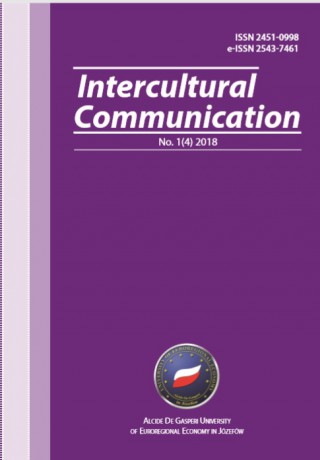Multilingualism in Post-Soviet Space (in Kazakhstan and Georgia)
Multilingualism in Post-Soviet Space (in Kazakhstan and Georgia)
Author(s): Valentina Chkheidze, Naziya Zhanpeissova, Zinaida ChachanidzeSubject(s): Applied Linguistics, Communication studies
Published by: Wydawnictwo Akademii Nauk Stosowanych WSGE im. A. De Gasperi w Józefowie
Keywords: bilingualism; multilingualism; language situation; globalization; integration; triunity of languages
Summary/Abstract: Under conditions of globalization, modern society all over the world undergoes certain changes in economic, cultural, political and religious fields which, in its turn, has a great influence on the language situation – one of the most important and urgent issues on the present stage of linguistics development. Globalization process creates general context of people’s development and the conditions for successful intercultural communication. As a result, certain changes have occured in language situation, which being in the midst of integration processes of the world varies from country to country. The main interest of the article is to consider the situation in the post-soviet space, namely in Kazakhstan and Georgia. Despite significant discrapancies in geo-political characteristics, the level of economic development, available natural resources, territorial and other parameters, language situation in these two republics has certain similarities. Research objectives. The article makes an attempt to describe language situations in Kazakhstan and Georgia within the post-soviet period, find similarities and analyze the transition process from bilingualism to multilingualism. Research methodology. In the research process we used a combination of general scientific, general and concrete methods, including different levels (description method, statistical analysis, fragmentary description to distinguish fragments for contrasting single-system phenomena, etc.). Conclusion. In post-soviet space namely in Kazakhstan and Georgia under conditions of general integration knowledge of English is essential which leads to the transition from bilingualism to multilingualism. With an increasing significance of national languages and integration of the English language, the status of Russian changes. However, it remains the main functioning language both inside and outside these countries. Despite their differences, the language situations in these countries have certain common peculiarities which support formation of the new individual type capable of active life in multinational and poly-cultural environment.
Journal: Intercultural Communication
- Issue Year: 1/2018
- Issue No: 4
- Page Range: 9-20
- Page Count: 12
- Language: English

